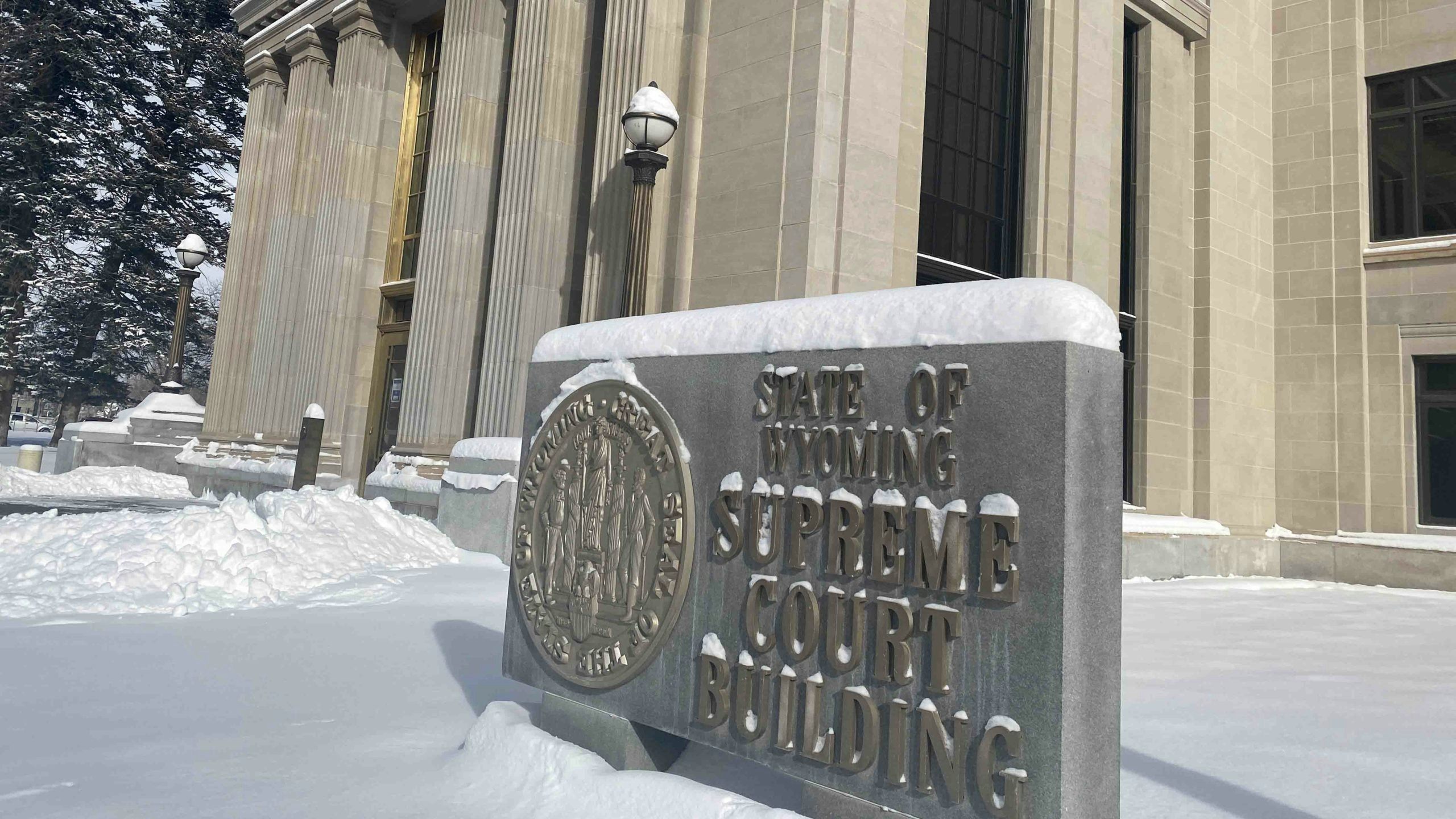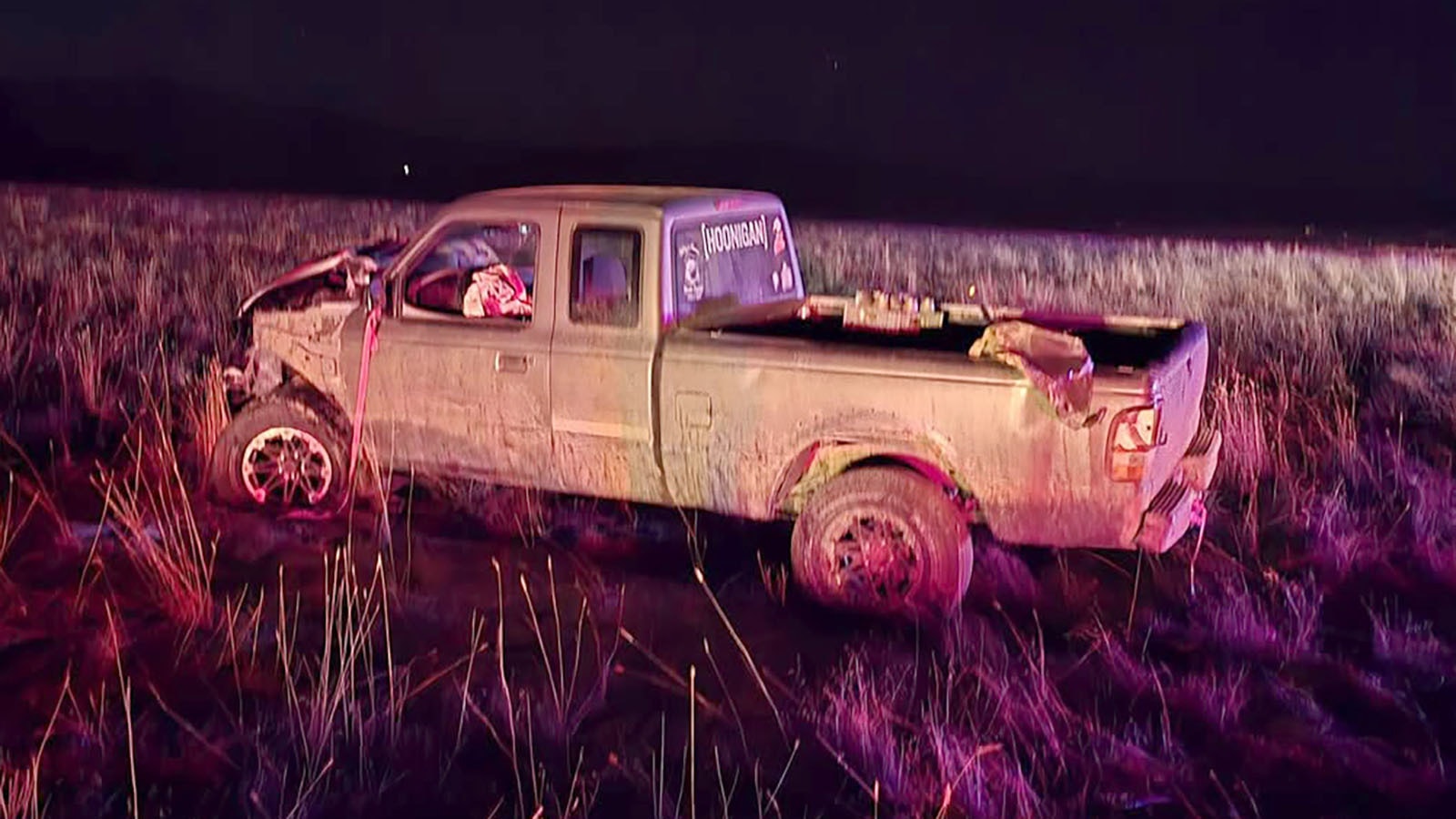The Wyoming Supreme Court is considering whether and when it’s appropriate for law enforcement agents to search a criminal defendant’s lawyer.
Jason Gay, of Tynsky Law Office, filed a petition last week to the state’s highest court, asking it to decide if it’s unreasonable for sheriff’s deputies to search a lawyer and his office – and potentially his home – when the attorney isn’t suspected of a crime, among other questions.
The contested case isn't clear-cut: Gay's client is both a defendant in a criminal case and the victim of alleged crimes.
Gay represents Chet Walker, a Robertson, Wyoming, man accused of multiple counts of violating a protection order his wife had against him, during a monthlong tumultuous relationship and falling out between the pair.
A Uinta County Sheriff’s Deputy went to the local jail to interview Walker on Oct. 11.
Walker told the deputy there was a video on his phone that he wanted to submit as evidence that his wife had violated a protection order, court documents say.
Walker’s phone also has videos of his wife attacking him, according to the court file.
Walker offered to hand his phone over to the authorities – to verify certain original videos.
But Gay had the phone in his possession since Walker was in jail, and Gay had been using it to find case evidence, says Gay’s petition.
Gay told the Uinta County Sheriff’s Office and Uinta County Attorney’s Office that he could hand over the needed data – but he wanted the county authorities to specify the scope, or just what they wanted, from the phone first, the document says.
Gay told Cowboy State Daily in an interview Monday that he was working not to exceed his client’s request – that only some evidence from his phone be made available to law enforcement.
About That Warrant
According to Gay’s petition, the voluntary hand-off didn’t happen: Rather, two Uinta County Sheriff’s deputies arrived at the Tynksy Law Office “unannounced” to execute a search warrant and retrieve the phone on Oct. 17.
That warrant was unlawful since it was for places in Sweetwater County but was signed by a magistrate in Uinta County, the petition says, adding that the warrant didn’t have “any discernible scope” for what deputies wanted off the phone.
Gay told the deputies to come back with a warrant confined by a “scope,” or to work with him on a voluntary transfer of the phone instead.
But authorities kept pursuing the warrant, this time getting authority for a search of Gay’s person, office, “property,” and “premises.” Gay said the word “premises” includes his home, whether the sheriff’s office intended that or not.
These were “extraordinary circumstances,” Gay wrote in his petition. He arranged for his staffers to have Walker’s phone ready in a sealed envelope for when deputies arrived, so other private client files in the office wouldn’t be searched.
Still, Gay and his client filed a motion to quash the warrant on Oct. 31. They asked the court to order investigators to stop searching the phone, return it to Gay in Green River, and destroy any copies of data taken from the phone.
That motion calls the warrant to search the defense attorney overbroad and unreasonable – and characterizes searching a person’s lawyer for evidence as a slippery slope.
“The indispensable relationship of trust between client and attorney and the adequate functioning of our adversary system of justice can only be ensured,” says the motion, “when the client can completely disclose all facts – favorable and unfavorable – without fear that the attorney’s files will be seized by police officers pursuant to a search warrant.”
Defendant’s Own Crime Tip
Uinta County Attorney Loretta Howieson Kallas countered in a Nov. 8 response.
State law provides that any circuit judge could issue a search warrant authorizing law enforcement to search for and seize evidence of a crime, the prosecutor noted.
And Wyoming prefers that authorities obtain a warrant when they want something, she added.
Walker and Gay’s motion alleged several things that weren’t actually in the warrant, Kallas wrote.
She argued that the warrant was, in fact, tailored to the case’s needs: the warrant authorized the deputy to seize the phone for communications between Walker and his wife relating to protection order violations and other domestic-style crimes, photos and recordings of their altercations from August 2021 through September 2024, and potentially, geo-location information for the phone through those dates.
Drawing from a prior Wyoming court case, Kallas wrote that circuit court judges authorizing warrants should refer to the affidavit evidence already listed, to make a practical, commonsense decision whether the investigation truthfully indicates where crime evidence can be found.
The deputy asked that Gay’s person be included in the warrant since lawyers are mobile and can work on the go, the prosecutor argued.
“Here, the informant was Chet Walker himself and his counsel, Jason Gay,” Kallas wrote. “A reasonably prudent judicial officer could certainly rely on (their tip about evidence against the wife) to find probable cause in granting a search of the cellular device.”
But What About Searching Lawyers?
To Gay’s assertion that the search is unreasonable, the prosecutor argued that this warrant was on the benign side because it authorized the seizure of an object – Walker’s cellphone – rather than a search of Gay’s papers.
There’s no special provision protecting lawyers from searches in Wyoming, she argued.
“There is no per se restriction of a search of an attorney’s office related to material evidence it holds for a client,” wrote Kallas.
She argued that it’s also irrelevant that Gay wasn’t suspected of a crime, writing: “The State is not prohibited by the 4th and 14th Amendments form (sic) seeing issuance of a search warrant simply because the owner or possessor of the place to be searched is not reasonably (suspected) of criminal involvement.
Nope
Gay asked for a hearing in Evanston Circuit Court. Because Judge Michael Greer had authorized the search warrant, he sent the matter to Kemmerer Circuit Court Judge Gregory S. Corpening for review.
Corpening denied Gay’s motion to quash the warrant.
When Gay appealed – this time on his own behalf and on behalf of his office, but without Walker’s participation, Uinta County District Court Judge James Kaste upheld the lower court’s denial.
Kaste wrote that Gay was a “stranger” to the case at hand because the criminal case was about Walker.
Gay disagrees with that characterization, he told Cowboy State Daily.
“If the person to be searched is not a party (who can challenge in court), then I don’t know who is a party to a search warrant,” he said. “Explicitly authorizing a search of my person, my home, and our offices – I don’t know who would be party to a search warrant if we’re not.”
Neither judge held a hearing on Gay’s motion, he said.
Citing her policy of not commenting on ongoing cases, Kallas declined Monday to comment on Gay’s Wyoming Supreme Court petition.
Judge Greer declined to comment as well, also citing his court’s long-standing policy of not commenting on pending matters.
Corpening and Kaste did not respond to Monday email requests for comment.
Walker remains in jail, Gay said.
Walker’s wife’s listed phone number went straight to a full voicemail box.
Clair McFarland can be reached at clair@cowboystatedaily.com.





